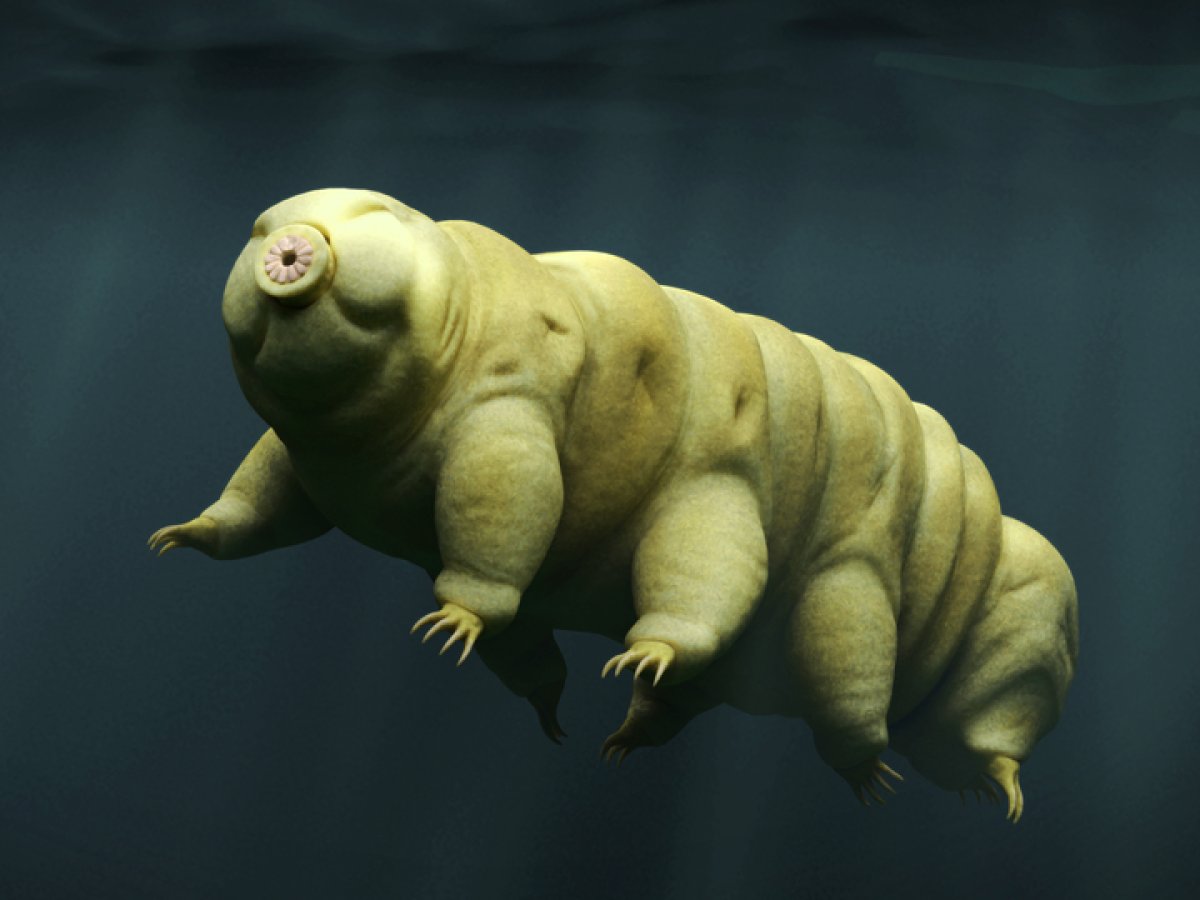Tardigrades are one of the toughest species on the planet. They can survive being boiled and frozen, and go a decade without water. They are also the only known creatures to have survived the vacuum of space. Yet scientists say they may now have found these micro-animals' Achilles' heel—global warming.
In a study published in Scientific Reports, researchers led by Ricardo Neves, from the University of Copenhagen in Denmark, looked at how well a species of tardigrade, Ramazzottius varieornatus, coped under different temperature conditions.
"One of the [things] that makes tardigrades so interesting is their extraordinary ability to survive in environments characterized by severe conditions, such as environments without oxygen or water and temperatures close to the absolute zero," Neves told Newsweek. "Moreover, we were aware of previous studies reporting on their ability to endure high temperatures (up to 151 C) for short exposure times (up to one hour). However, it remained to be seen whether tardigrades could endure exposure to high temperatures for periods exceeding one hour, which we tested in our study."
R. varieornatus is a species of tardigrade that is found in transient freshwater habitats like roof gutters. In order to actively feed and reproduce, they need to be surrounded by a film of water.
Like other tardigrades, R. varieornatus is able to enter a state of cryptobiosis—a sort of state of suspended animation. There are five subtypes of cryptobiosis, and the team was looking specifically at desiccation, which allows it to survive without water.
Neves said that because of previous research showing their ability to survive extreme temperatures, they were expecting the tardigrades to be able to cope fairly well under different conditions. This, however, was not the case. "We had found their Achilles' heel," Neves said. "Tardigrades are definitely not the almost indestructible organism as advertised in so many popular science websites."
The researchers looked at how the tardigrades found in roof gutters in Denmark coped under different temperatures. They found that about 50 percent of tardigrades in the active state died when the temperature was put up to 37.1 C. If they were given time to acclimatize, they made it to 37.6 C. If they were in a state of cryptobiosis, they could survive temperatures of up to 82.7 C for one hour. If exposed for 24 hours, the maximum temperature was 63.1 C.

The highest temperature ever recorded in Denmark is 36.4 C. This is not far off the maximum tardigrades in the active state can survive in, the researchers note. This, they say, could mean the species struggles as global temperatures increase.
According to Climate Change Adaptation, a website run by Denmark's Ministry of the Environment and Food of Denmark and the Environmental Protection Agency, climate change will result in the country having warmer summers, longer heatwaves and more periods of drought.
"The fact that the median lethal temperature for active R. varieornatus is so close to the median maximum temperature in Denmark—where the specimens used in this study have been sampled—is quite worrying in our opinion," Neves said. "Before our study tardigrades were regarded as the only organism on Earth to survive a cataclysmic event, but now we know this is not true. [While tardigrades are] among the most resilient organisms inhabiting our planet, it is now clear that they are vulnerable to high temperatures. Therefore, it seems that even tardigrades will have a hard time handling rising temperatures due to global warming."
He said that while R. varieornatus may be able to acclimatize to increasing temperatures, more studies on different species would be needed to better understand how they may cope in a warmer world. This is what the team now plans to do, Neves said.
Uncommon Knowledge
Newsweek is committed to challenging conventional wisdom and finding connections in the search for common ground.
Newsweek is committed to challenging conventional wisdom and finding connections in the search for common ground.
About the writer
Hannah Osborne is Nesweek's Science Editor, based in London, UK. Hannah joined Newsweek in 2017 from IBTimes UK. She is ... Read more
To read how Newsweek uses AI as a newsroom tool, Click here.








